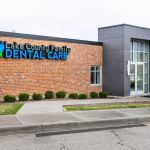How Often Should You Have a Dentist Check-Up?
Many people in the United States may wonder how often they should visit the dentist for check-ups. After all, maintaining good oral health is not only about brushing and flossing but also about receiving professional care regularly. As someone who has always been meticulous about my dental health, I wanted to explore the answer to this question. Through personal experience and research, I’ve found that the frequency of dentist visits can depend on several factors, including your current oral health, habits, and lifestyle. In this article, I’ll share my findings on how often you should schedule your dentist check-up to ensure your teeth and gums stay healthy.
The Standard Recommendation: Every Six Months
According to most dental professionals and organizations like the American Dental Association (ADA), the general recommendation for a dentist check-up is every six months. This timeline is based on a balance between ensuring that any potential issues with your oral health are caught early and not overburdening your schedule with too many visits. These semi-annual visits typically include a thorough cleaning, an exam to check for cavities, gum disease, and other potential problems, and x-rays if necessary.
During these visits, the dentist can spot early signs of issues that may not be immediately apparent to you. For example, gum disease can be present even without noticeable symptoms, and a regular check-up allows your dentist to catch it before it becomes more serious. Similarly, tooth decay or cavities may start forming in areas that are hard to reach with a toothbrush or floss, but they can be detected by a dentist during an exam.
Personalized Check-Up Schedules Based on Your Oral Health
While the six-month recommendation applies to most people, it’s important to note that your individual oral health needs might require a different schedule. For some, more frequent visits are necessary, while others may need less. Here are some key factors that can influence how often you should visit the dentist:
- Oral Health History: If you have a history of gum disease, cavities, or other oral health issues, your dentist may recommend more frequent check-ups. For example, individuals with a tendency to develop cavities might need to visit the dentist every three to four months to ensure that any new issues are caught early.
- Age and Risk Factors: Children, older adults, and people with certain health conditions (like diabetes) are often more susceptible to oral health problems. This might require a dentist to recommend more frequent visits to monitor and maintain oral health.
- Dental Habits: People who smoke, have poor dietary habits, or don’t maintain a consistent oral hygiene routine may need more frequent visits to ensure their gums and teeth are healthy.
For instance, I personally had a period where I struggled with maintaining a consistent flossing routine. My dentist recommended quarterly visits to help ensure that any plaque buildup and early-stage gum issues were addressed before they developed into something more severe.
The Importance of Professional Cleanings
Even if you take great care of your teeth at home, professional cleanings are an essential part of maintaining good oral health. Brushing and flossing can only do so much. Over time, plaque and tartar can build up in hard-to-reach areas of your mouth, and only a professional cleaning can remove them effectively. This buildup can lead to gum disease, bad breath, and even tooth loss if left untreated.
During a routine cleaning, your dental hygienist will use special tools to remove plaque and tartar, polish your teeth, and make sure that your gums are healthy. They’ll also provide personalized tips for improving your daily oral care routine. Skipping this part of your dental check-up can lead to significant long-term issues, even if you brush and floss regularly at home.
What Happens During a Dentist Check-Up?
Every dentist check-up usually follows a standard process, but the exact steps can vary depending on your needs and your dentist's specific practices. Here's a general breakdown of what you can expect during your visit:
- Health History Review: Your dentist will review your oral and overall health history. They may ask about any recent health changes, medications you're taking, or any specific concerns you have about your mouth or teeth.
- Examination: The dentist will visually examine your teeth, gums, and mouth for signs of decay, gum disease, oral cancer, or other issues. They may also use special instruments to check for cavities or gum recession.
- X-Rays: If needed, the dentist will take x-rays to get a closer look at the areas that aren't visible to the naked eye, such as the roots of your teeth and the bone structure in your jaw.
- Cleaning: A dental hygienist will thoroughly clean your teeth, removing plaque, tartar, and bacteria. This step is crucial for preventing cavities and gum disease.
- Fluoride Treatment: Depending on your oral health, your dentist may apply a fluoride treatment to help strengthen your teeth and prevent decay.
- Discussion: After the exam, the dentist will discuss their findings and any recommended treatments. This could include follow-up visits, new habits, or potential dental procedures.
How Often Do You Really Need a Dental Check-Up? My Personal Experience
In my experience, it’s easy to forget how important regular dentist visits can be. I used to think that as long as I was brushing twice a day and flossing, I could skip the dentist for a while. However, after a few years of ignoring my check-ups, I began to notice some sensitivity in my teeth and gums. I decided to book an appointment, and it turned out that I had the early stages of gum disease, which could have been much worse if left untreated.
That experience taught me that regular visits are not just about getting your teeth cleaned. They are an essential part of catching problems early and preventing bigger issues down the road. I now make it a priority to go in for my check-up every six months, and I’ve noticed a significant improvement in my overall oral health.
Can You Skip Dental Check-Ups? What Happens If You Do?
While skipping a dental check-up may seem like an easy way to save time and money, it can have serious consequences in the long run. Problems such as cavities, gum disease, and even oral cancer may develop without obvious symptoms. By the time you notice something is wrong, the issue could be much harder and more expensive to treat.
For example, a friend of mine decided to skip his regular check-ups for a couple of years. Eventually, he developed an abscess that required emergency treatment and an expensive root canal. Had he gone in for regular check-ups, the issue could have been caught much earlier and treated more affordably. This just goes to show how critical it is to stay on top of your dental health.
Conclusion: Why Regular Dental Check-Ups Matter
Maintaining optimal oral health requires more than just brushing and flossing at home. Regular dentist check-ups are essential for identifying potential problems early and preventing major dental issues down the road. While the general recommendation is to visit the dentist every six months, the frequency of your visits may vary based on your oral health and lifestyle factors.
In my experience, visiting the dentist regularly has helped me avoid major dental procedures and keep my smile healthy and bright. Don’t underestimate the importance of routine check-ups. It’s not just about clean teeth; it’s about maintaining your overall health and well-being. So, schedule your next dental check-up today and make your oral health a priority!







 Kimberly Blaser, DDS5.0 (45 review)
Kimberly Blaser, DDS5.0 (45 review) Lake County Family Dental Care4.0 (449 review)
Lake County Family Dental Care4.0 (449 review) Small World Dental - Pediatric Dentist and Orthodontist4.0 (1469 review)
Small World Dental - Pediatric Dentist and Orthodontist4.0 (1469 review) Triangle Dentistry: Smith, Tart & Associates4.0 (329 review)
Triangle Dentistry: Smith, Tart & Associates4.0 (329 review) Palatine Dental Associates4.0 (334 review)
Palatine Dental Associates4.0 (334 review) Inverness Dental Care | Dr. Payal Trivedi5.0 (252 review)
Inverness Dental Care | Dr. Payal Trivedi5.0 (252 review) The Importance of Oral Health Education During Pregnancy for a Healthy Pregnancy
The Importance of Oral Health Education During Pregnancy for a Healthy Pregnancy Best Tips for Brushing Your Teeth Properly for Healthy Gums: Essential Techniques for Oral Health
Best Tips for Brushing Your Teeth Properly for Healthy Gums: Essential Techniques for Oral Health Why Skipping Dental Checkups Can Lead to Bigger Oral Health Problems
Why Skipping Dental Checkups Can Lead to Bigger Oral Health Problems Advantages of Porcelain Dental Restorations
Advantages of Porcelain Dental Restorations How Can Diabetes Cause Tooth and Gum Problems? Preventing and Managing Oral Health Issues
How Can Diabetes Cause Tooth and Gum Problems? Preventing and Managing Oral Health Issues Healthy Habits for Promoting Good Oral Health and Hygiene: Tips for a Healthy Smile
Healthy Habits for Promoting Good Oral Health and Hygiene: Tips for a Healthy Smile